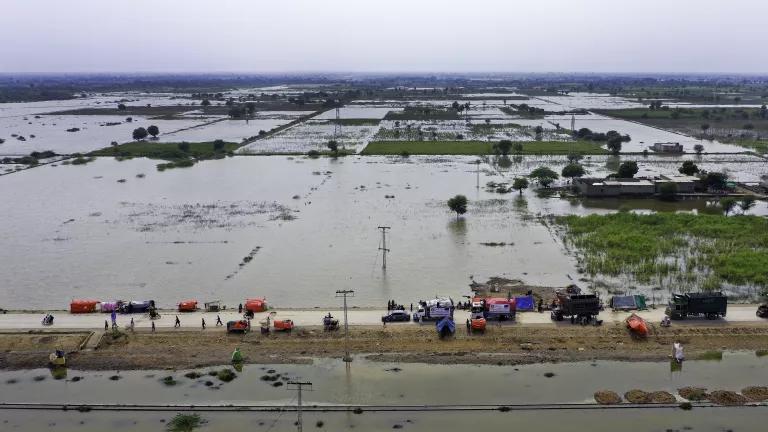
Once in a while you attend an event that grounds you and restores your faith that maybe we can get ahead of this fight for equality and a just society. PolicyLink's 2015 Equity Summit, a conference dedicated to principles of fair and just inclusion with equitable access to opportunity, served as that restoration.
The Urban Solutions program organized a cross-programmatic delegation of staff to attend the Equity Summit in Los Angeles, joining approximately 3,000 other advocates, funders, organizers, and national and local leaders from government, non-profit and for profit organizations across the country. The attendees are inspirational people who are deeply committed to advancing justice in housing, transportation, environment, labor, disability effort and inclusive democracy. Our delegation consisted of 14 NRDC staff who themselves are inspiring -- staff who are embedding and elevating equity into their work as a priority to achieve a cleaner environment, and not as a tactic for short wins.
As I walked around the conference, I saw faces of all shades; many faces that looked like my own and felt the warmth and welcome of a space bursting at the seams with inclusion. I thought, "This is how you build equity." You build it by living it, by being a model of the type of society that you want to create, by joining together with others to demand access to opportunity for all, not just a chosen few.
Doing work centered on equity means being clear about racial inequality, economic inequality, and social and environmental injustice. The environmental fight includes the fight for climate justice, and for those continuing to suffer health impacts from environmental degradation and pollution in their communities. The environmental fight includes the fight for affordable housing, the freedom to live in your community and have the ability to make the choice of whether or not to move without the threat of displacement that might eventually force a decision. The environmental fight includes the right to vote, ensuring the ability to hold leaders accountable for their promises. The environmental fight includes the fight to earn a living wage. For example, closing racial gaps in income and employment in Washington, D.C., where I work, would, mean 6,900 more people employed in Wards 7 and 8 (the highest unemployment rates in the city), and an additional $65 million added to the city's GDP.
We win by building inclusive coalitions that value different types of lived and learned experiences.
Along with our partners, the Kresge Foundation, the Center for Social Inclusion and the Partnership for Southern Equity, Urban Solutions hosted a reception and conversation on Growing a Unifying Agenda for the 21st Century. The event affirmed existing partnerships, provided the opportunity for new connections, and created a space to openly discuss opportunities to elevate climate justice and equity into the environmental agenda of big to medium green groups.
While NRDC has had an environmental justice program since the 1990s and since 2009 has been a home to Voces Verdes a Latino advocacy initiative under the Partnership Engagement program, our institution can benefit from a more robust and meaningful equity lens as whole. And as we move forward, we must engage our partners with humility, recognizing and honoring the daily work that communities on the ground have led to advance racial, social, economic and other injustices.
Equity involves intentionality.
Equity requires valuing everyone's contribution.
Equity should not be watered down.
Equity is a value, it is not a tactic.



